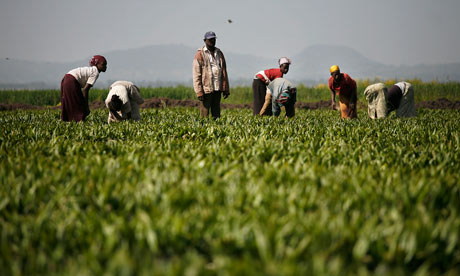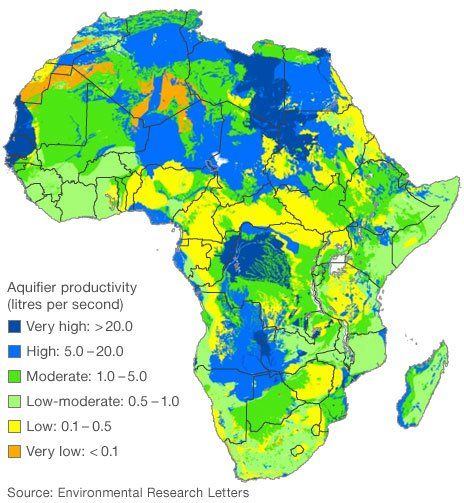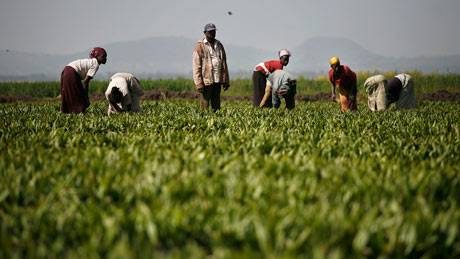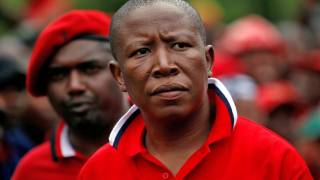UN Land Grab Rapes Africa of Resources & Rebrands Dissenters as Rebels
Source: occupycorporatism.com

In East Timor, the site of land grabs of agricultural areas, families have been displaced causing hunger and poverty to escalate. The World Bank has been behind such terroristic measures, along with government interest groups and the UN.
With the assistance of the UN, corporations have begun descending on Africa to aid in the securitization of their natural resources. Examples like an $11 million dollar project funded by the Bill and Melinda Gates Foundation and the Cocoa-Cola Corporation are usurping 50,000 Kenyan and Ugandan smallholders to produce fruit for Minute Maid, a subsidiary for Cocoa-Cola.
“Africa is now the last frontier in terms of arable land,” said James Nyoro, the Rockefeller Foundation’s managing director for Africa. “With the population growing to 9 billion, the rest of the world will have to depend upon Africa to feed it.”
In February of 2012, the Rights and Resources Initiative, a non-governmental organization was supportive of the UN’s massive land-grab in Africa which displaced an estimated 500 million citizens from the sub-Sahara as well as targeted 346 billion acres of farmland for the purpose of securitizing food production. The RRI denies their involvement, however their purpose is to collect data on “forest rights” which assists in the success of a land-grab.
According to a 2011 report released by the International Land Coalition, there is a rush by global networks to acquire land in the sub-Saharan region of Africa by foreign corporations and governments which is causing environmental and agricultural devastation along the River Niger in Africa.
The report states: “The siphoning of water for huge areas of farmland will worsen the already low water levels of the Niger.” The outcome was a “50 percent diminution of the delta flood plain’s land area. Given that social conflict over resources between farmers and pastoralists has always been a feature of the Niger Basin, the Coalition suggests that large-scale irrigation could heighten tension between local and downstream water users.”
 While 300 million Africans do not have access to safe drinking water, scientists have discovered underground aquifers of water in Africa that are 100 times the amount found on the surface of the continent.
While 300 million Africans do not have access to safe drinking water, scientists have discovered underground aquifers of water in Africa that are 100 times the amount found on the surface of the continent.Researchers for the British Geological Survey (BGS) and the University of London have uncovered this resource; and have written a paper in the Environmental Research Letters journal. The created a detailed map of the underground water.
Helen Bonsor, a co-author of the paper, said, “The amount of storage in those basins is equivalent to 75m thickness of water across that area – it’s a huge amount.”
The researchers have designated many countries as a “water source” with untapped potentials of enormous reserves of underground water.
Dr. Alan MacDonald of the BGS and lead author of the study said: “High-yielding boreholes should not be developed without a thorough understanding of the local groundwater conditions. Appropriately sited and developed boreholes for low yielding rural water supply and hand pumps are likely to be successful.”
The World Bank issued a statement of concern last month for the coming food shortage due to the drought devastating the US and Europe. According to Jim Yong Kim, World Bank group president: “Food prices rose again sharply threatening the health and well-being of millions of people. Africa and the Middle East are particularly vulnerable, but so are people in other countries where the prices of grains have gone up abruptly.”
To quell the locals from interfering with the UN’s agendas in Africa, NATO forces were sent into areas like East Timor to “calm” the people. An anonymous UN official describes how after the citizens “realized they were close to pressing the self-destruct button” they gave up their fight.
The creation of East Timor was purely directed by the UN who installed an “independent government” in 2002. The UN quickly stepped in to bring order back to East Timor in 2006 after soldiers defected from the controlled forces of the puppet government and “launched a mutiny”. Once the UN was able to establish control over the citizens be threat of force, the East Timor government asked for assistance in rebuilding the country.
East Timor is rife with oil and natural gas reserves which are estimated to be worth more than $11 billion. This natural resource is quite attractive to the globalist Elite.
[...]
Read the full article at: occupycorporatism.com






















